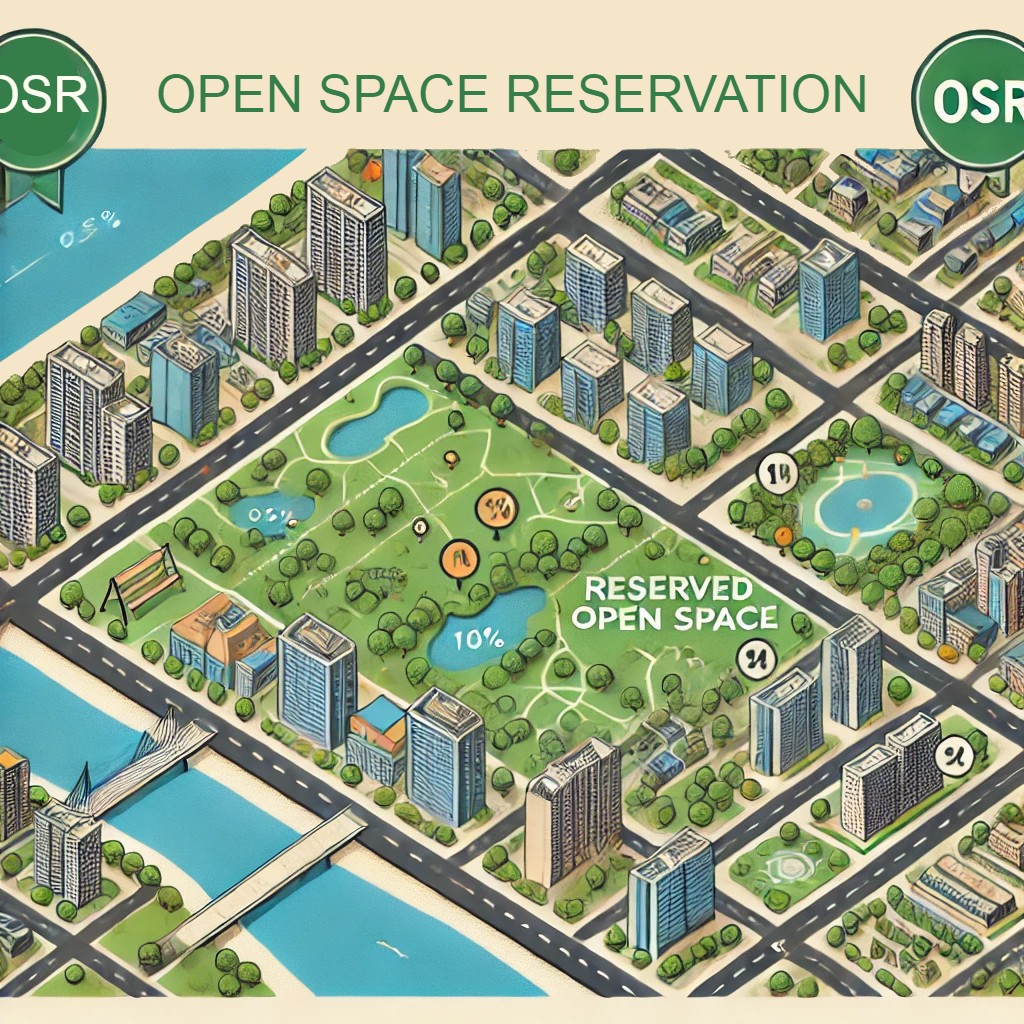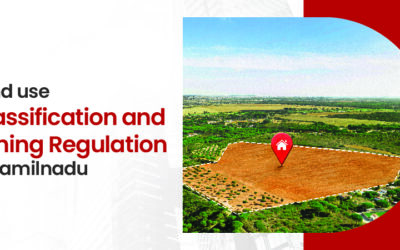Open Space Reservation (OSR) in Tamilnadu DTCP Approval
Introduction
When developing land for buildings or layouts, adherence to regulations set by the Directorate of Town and Country Planning (DTCP) is crucial. One significant requirement is the Open Space Reservation (OSR), which mandates that a portion of land be dedicated to public amenities like parks, playgrounds, and recreational areas, ultimately fostering a better urban environment. This blog offers a comprehensive overview of OSR in Tamilnadu DTCP, including its application, exemptions, and calculation methods.
What is OSR in DTCP Approval?
Open Space Reservation (OSR) refers to land designated by the government for public use—primarily parks and recreational facilities—when a landowner intends to develop buildings or layouts. Under Tamil Nadu DTCP regulations, landowners must allocate 10% of their land as OSR if the total area exceeds 3,000 square meters (74 cents). This portion is to be gifted to the government at no cost.
For smaller developments (less than 1 hectare or 2.47 acres), landowners can opt to pay an amount equivalent to the guideline value of the land instead of gifting the OSR. However, for land exceeding 2.47 acres, the 10% OSR must be reserved and transferred to the government without an option for cash payment.
Are There Any OSR Exemptions?
Yes, there are exemptions to the OSR requirement:
- Land Below 3,000 sq.m (74 cents): OSR is not required if the total land area is less than 3,000 square meters or 74 cents. This exemption applies only to land parcels that have been subdivided on before 29th November 1972 in rural areas and since 1st January 1980 in urban areas.
Is OSR Mandatory for All Kinds of Building Development?
If the land was subdivided below 3000 sqm (74 cents), OSR at the same time is not required.
If a building is developed within an already approved layout where the developer has provided OSR, there is no need to allocate additional OSR for that specific development. However, for any land that is not part of an approved layout exceeding 74 cents, the 10% OSR requirement remains applicable, or the equivalent guideline value must be paid.
How is OSR Calculated?
Calculating OSR depends on the total land area being developed. Here are some examples:
- Land Area of 45 Cents (below 3,000 sq.m): No OSR is required as it falls below 74 cents.
- Land Area of 2.10 Acres: 10% of the land (21 cents) must be allocated as OSR, or the developer can pay the equivalent guideline value for 21 cents of OSR land.
- Land Area of 2.50 Acres: The developer must reserve and gift 10% (25 cents) to the government; no cash equivalent is allowed.
OSR Requirements for Industrial and Educational Institutions
For developments in industrial and educational sectors, OSR is still required if the land area exceeds 3,000 square meters (74 cents). Unlike residential or commercial projects but the OSR land does not need to be gifted; the landowner is responsible for its maintenance for public use. Additionally, for land areas below 1 hectare (2.47 acres), the option to pay the equivalent guideline value in place of OSR is not available.
How OSR is Calculated for Residential Layout Developments
For residential layouts, the OSR requirement is calculated based on the balance area after subtracting the proposed road area from the total land area. For example:
- Proposed Land Area: 2.50 acres (250 cents)
- Proposed Road Area: 0.63 acres (63 cents)
- Balance Area: 2.50 acres – 0.63 acres = 1.87 acres (187 cents)
- OSR Requirement: 10% of 1.87 acres = 18.7 cents must be allocated as OSR.
Related Article – DTCP Layout Approval Rules For 2021 In Tamilnadu
Conclusion
Open Space Reservation (OSR) in Tamilnadu DTCP approval is a vital regulation that ensures land developments incorporate sufficient public spaces. By allocating 10% of the land for public use, developers help create balanced and sustainable communities. While exemptions and variations exist based on the size and type of land, the overarching principle of reserving land for OSR remains critical to responsible urban planning.
Understanding and adhering to OSR requirements is essential for compliance with DTCP regulations and enhances the livability and value of developed properties.




